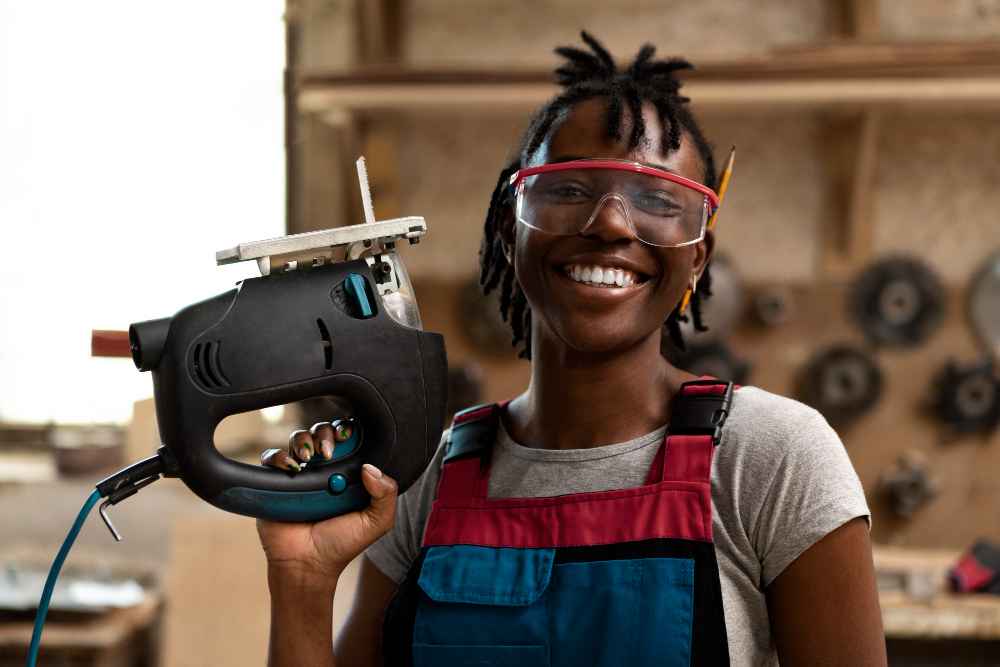Mechanical engineering technicians and technologists play a crucial role in various industries, including manufacturing, automotive, aerospace, and more.
These professionals are highly skilled in applying engineering principles and technical knowledge to design, develop, test, and maintain mechanical systems and components.
Despite not requiring a degree, mechanical engineering technicians and technologists can secure high-paying jobs in Canada.
In this post, we will explore the responsibilities, qualifications, training, career opportunities, salaries, and job outlook for mechanical engineering technicians and technologists in Canada.
Overview of Mechanical Engineering Technicians and Technologists

Mechanical engineering technicians and technologists are essential members of engineering teams, providing technical support and assisting engineers in various aspects of the design, development, and maintenance processes.
They collaborate closely with engineers, using their knowledge of engineering principles, computer-aided design (CAD) software, and testing equipment to contribute to the creation of mechanical systems and components.
Job Responsibilities
Mechanical engineering technicians and technologists perform a range of responsibilities, including:
- Assisting in the design and development of mechanical systems and components.
- Conducting tests and experiments to analyze the performance and functionality of prototypes.
- Creating and modifying technical drawings, schematics, and blueprints using CAD software.
- Troubleshooting and diagnosing mechanical issues and recommending appropriate solutions.
- Collaborating with engineers to improve the efficiency and effectiveness of mechanical systems.
- Participating in the installation, maintenance, and repair of mechanical equipment.
- Ensuring compliance with industry standards, regulations, and safety protocols.
The Distinction between Mechanical Engineering Technicians and Technologists:
1.1 Mechanical Engineering Technicians:
Mechanical Engineering Technicians are skilled professionals who assist engineers in the design, development, testing, and maintenance of mechanical systems. They are typically involved in hands-on tasks, working closely with engineers to bring their ideas to life.
A Mechanical Engineering Technician may specialize in various areas, such as industrial machinery, automation and robotics, refrigeration and air conditioning, or even design.
1.2 Mechanical Engineering Technologists:
Mechanical Engineering Technologists, on the other hand, play a more strategic role in the field. They are responsible for implementing and overseeing mechanical engineering projects, ensuring their successful execution from start to finish.

Technologists possess a broader skill set compared to technicians, allowing them to take on higher-level responsibilities such as project management, system analysis, and optimization.
Career Opportunities for Mechanical Engineering Technicians and Technologists
2.1 Industrial Maintenance Technician:
One of the prominent career paths for Mechanical Engineering Technicians is in industrial maintenance. These professionals are instrumental in keeping manufacturing plants, factories, and industrial facilities running smoothly. They are adept at troubleshooting machinery issues, performing repairs, conducting regular maintenance checks, and ensuring optimal performance of mechanical systems.
2.2 Design and Drafting Technician:
Mechanical Engineering Technicians specializing in design and drafting provide crucial support to engineers during the product development phase. They use computer-aided design (CAD) software to create detailed technical drawings and specifications.
These drawings serve as blueprints for manufacturing and assembly, ensuring that the final product meets the desired specifications.
2.3 Electro-Mechanical Engineering Technician:
Electro-Mechanical Engineering Technicians are responsible for integrating electrical and mechanical components into complex systems. They work on automation and robotics projects, combining their knowledge of both disciplines to design and develop efficient and reliable automated machinery.
2.4 Refrigeration and Air Conditioning Technician:
In today’s world, maintaining comfortable indoor temperatures and preserving perishable goods is crucial. Refrigeration and air conditioning technicians specialize in installing, repairing, and maintaining cooling systems in various settings, including residential, commercial, and industrial environments.
2.5 Cummins Generator Technician:
Cummins generators are widely used for backup power generation in critical applications such as hospitals, data centers, and industrial facilities.
Technicians specializing in Cummins generators are responsible for installation, troubleshooting, and maintenance of these power systems, ensuring uninterrupted operation during power outages.
Educational Pathways for Mechanical Engineering Technicians and Technologists:
3.1 Centennial College: Mechanical Engineering Technician – Design Program
Centennial College offers a comprehensive Mechanical Engineering Technician program with a specialization in design. This program equips students with the technical skills and knowledge required to excel in the field of mechanical design.

Graduates of this program find employment opportunities in industries such as automotive, aerospace, and manufacturing.
3.2 Humber College: Mechanical Engineering Technician Program
Humber College offers a well-rounded Mechanical Engineering Technician program that covers various aspects of the field. Students gain hands-on experience through laboratory work, industrial placements, and project-based learning. The program prepares graduates for careers as technicians in a wide range of industries.
3.3 Sheridan College: Mechanical Engineering Technician Program
Sheridan College provides a comprehensive Mechanical Engineering Technician program that focuses on practical training and industry-relevant skills. Students learn through a combination of classroom instruction, laboratory work, and real-world projects. The program prepares graduates to work as technicians in industries such as automotive, aerospace, and manufacturing.
Future Outlook and Industry Demand
The demand for skilled Mechanical Engineering Technicians and Technologists remains strong, driven by advancements in technology and the need for efficient and sustainable mechanical systems.
As industries continue to evolve, there will be an increasing requirement for professionals who can adapt to emerging technologies and contribute to the development of innovative solutions.
Mechanical Engineering Technicians and Technologists are indispensable in the field of mechanical engineering. Their roles are diverse, ranging from hands-on technical tasks to project management and system optimization.

With the right education and training, aspiring technicians and technologists can embark on rewarding careers that contribute to industrial innovation and progress. So, whether you aspire to be a Mechanical Engineering Technician, a Mechanical Engineering Technologist, or pursue a related career, the opportunities in this field are vast and promising.
FAQs
What is the difference between a mechanical engineering technician and a mechanical engineering technologist?
While both roles involve supporting engineering teams, technicians typically focus on hands-on tasks and practical applications, whereas technologists are more involved in the design and development stages.
Are there any certifications that can boost career prospects for mechanical engineering technicians and technologists?
Yes, certifications such as Certified Engineering Technologist (CET) and Autodesk Certified Professional (ACP) can enhance employability and demonstrate expertise in specific areas.
Can a mechanical engineering technician or technologist become a licensed professional engineer?
While not required, it is possible for technicians or technologists to pursue further education and experience to become licensed professional engineers.
Is there a demand for mechanical engineering technicians and technologists in Canada?
Yes, there is a consistent demand for skilled mechanical engineering technicians and technologists across various industries in Canada.
What are some potential career paths for mechanical engineering technicians and technologists?
Career paths can include roles such as project leaders, team supervisors, technical specialists, or even transitioning into sales or management positions within engineering companies.






